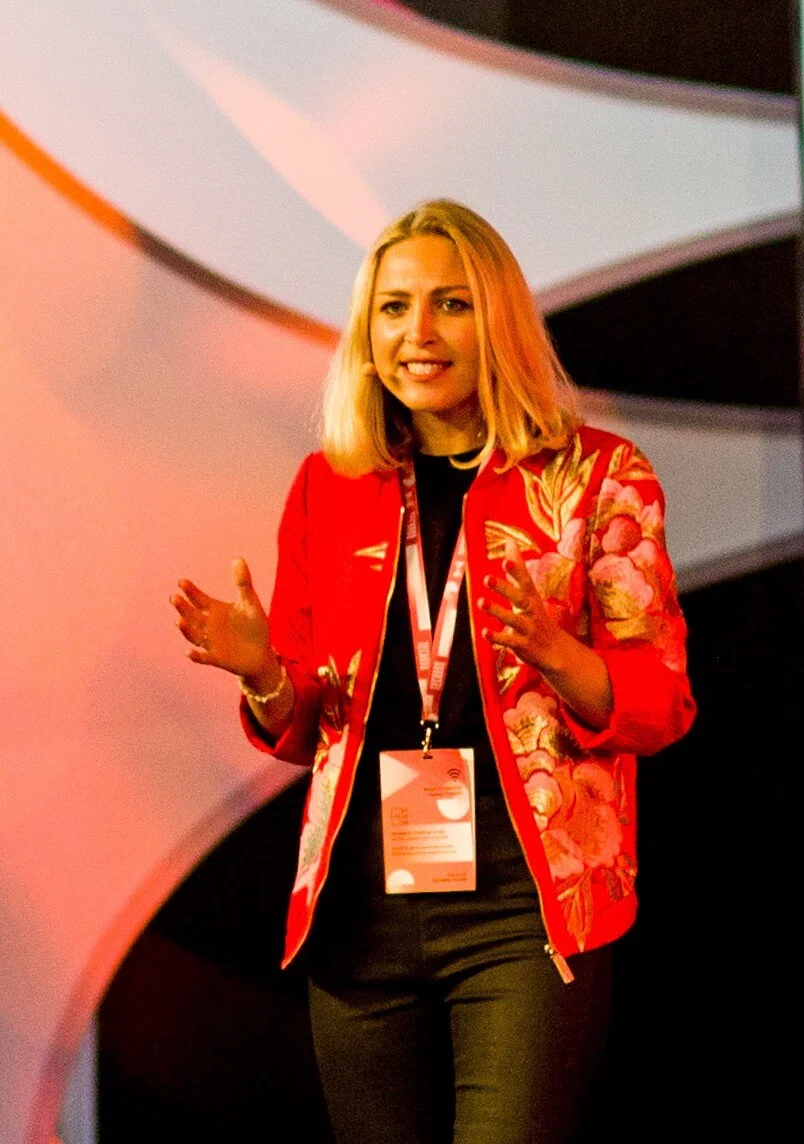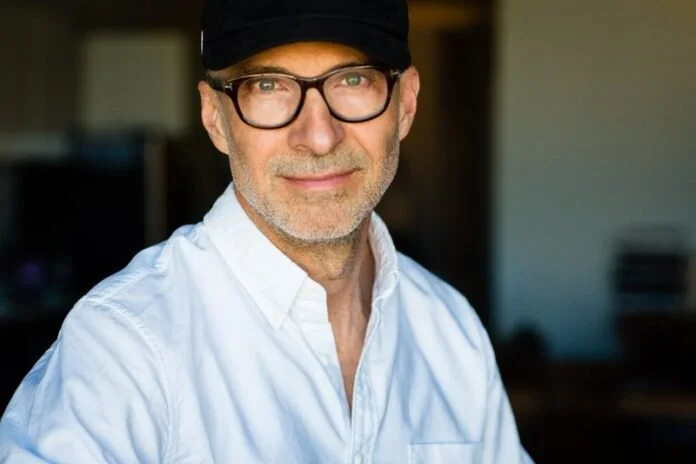Q&A with Stefan Kollenberg: On addiction & entrepreneurship
← back
Q&A with Stefan Kollenberg: On addiction & entrepreneurship
Intro: We recently caught up with entrepreneur and Naked podcast series 2 guest, Stefan Kollenberg, as part of our commitment to sharing stories and experiences from a diversity of entrepreneurs. Stefan has also been incredibly open about his battles with addiction (listen to his podcast episode), and we dedicate some space in this conversation to revisit the topic as well.
TFF: Thank you for joining us (again), Stefan. Let’s jump straight in… there is plenty of research on the warning signs to watch out for in relation to addiction, especially amongst entrepreneurs. What are the signs that you noticed and prompted you to seek help?
For me it's interesting because I stopped using before I became an entrepreneur, so I had started addressing some of this stuff in advance. But last year, I started to notice the signs again. I didn’t relapse, but I was very depressed and very anxious a lot of the time.
And a big part of that was because I was not working on my recovery from addiction at all. When getting clean it’s a work in progress, you have to change the way you live life. At least that’s the way it is for me. Addiction is a disease I will have for life and it’s how my brain works - I don't have a choice. This means I can’t just stop working on myself or stop working the Narcotics Anonymous (NA) program. But to answer your question, some of the signs that I notice are significant burnout, anxiety, depression, and suicidal thoughts.
I’ve worked with my therapist as well to build a system of warning signs that I am moving back to a bad place. I’ve got the early warning signs where I'm not doing as much exercise, my food habits start to slack, I'm eating out almost every single meal, I'm not going to my NA meetings, or I'm falling behind on service positions that I have within NA. Also here, I have noticeable increases in the number of days where I feel depressed or anxious. So these are all early warning signs for me to stop and say hey, things are starting to not be good. This is a blinker for me and I should check in with my sponsor and check in with my therapist.
Then where it starts to get even worse is where I'm no longer taking action. All of these things that I mentioned that are early warning signs, I know how to address them, to work through the process and to recover and get better. I've done it all before, but where it starts to get worse is when I know what to do but I don't do it. I acknowledge that I'm feeling this way and I could do this in order to feel better, but then choosing not to, and just sitting in misery and not feeling great. Also at this point, my friends and social life starts to disappear and I stop having that.
Those are some of the middle warning signs and then the big red flags like blaring alarm signs are sleeping changes. So if I stopped sleeping well or when my sleep patterns are all over the place, and then suicidal thoughts and just having those pop in my head. To me it’s not just addiction-related; it trickles into depression and anxiety as well but I can't separate that in my mind, it's all part of me.
A lot of this relates back to my experience with addiction and using drugs/alcohol as a solution. They were not the problem for me actually. The problem was that I felt terrible inside, I felt empty. I felt different, I didn’t feel like I was part of a group. Never. I didn't have a lot of self-love, and I was filling that hole inside of myself with substances.
This is now just starting to do the work to understand, well why do I feel that way. Why do I have these thoughts - what are they and how do I recognise those and address those?
TFF: What about external signs that those closest to you might notice? Is that something you’ve considered or talked about with the people around you?
I live with my best friend, and he sees me every day. We talk a lot about each other's mental health and where we're at, how we're feeling. There'll be stuff there but also some external signs like a large amount of weight gain - I'm normally in pretty good shape but I grew up not in great shape, so one of the signs is when my diet goes out the window and I stop exercising.
It's hard to think about how others might see the signs I recognise for myself, because a lot of it is in my head. Other things that are impacted and might be visible to those who know me best are how I interact, particularly in a working environment. Am I being open minded, am I really working with other people collaboratively, chatting through ideas, or am I more stand-offish and uncommunicative?
TFF: Changing the line of conversation slightly, I want to reflect on our recent conversation with Dr. Michael Freeman, when we talked about seeing entrepreneurs as people. Has the way in which people around you have treated you changed since you became more open about your mental health journey?
I think I've attracted people that are open minded. I’ve talked very publicly about my mental health and the whole experience over the past several years, and it has led me to having a network of people that are open to, or at least, whether if they're not publicly open to talking about it, they'll privately talk to me about it or they'll share and confide in me.
I don’t see talking about my mental health as a negative. I see it as an asset. Even looking at joining a new company, they saw it as an asset. It will make other people in the company more comfortable to discuss this when they see a leader who is openly discussing their mental health.
Also, what has come with my mental health journey is a ton of self-reflection and self-growth, and just being more aware and conscious of myself, my skills, my weaknesses, my defects, my assets, and made me a better manager and a better people person. I know that might not be the same for everyone depending on the industry, but when you look at the industries that I have worked in - diversity, equity and inclusion – it’s obviously going to be a bit more open minded, more considerate, thoughtful and it's the people that I'm surrounding myself with align with that. If I was in construction, I don't know.
TFF: Is seeing an entrepreneur as a person (which includes all the challenges they face and their mental health), rather than an investment or an asset going to help change the stigma around mental health?
Yes, seeing them as a person will do a great deal in building trust and building that rapport and building that relationship. But at the end of the day, if you've built the incentive structure and the priorities such that you need to accomplish X amount of growth in order for me to be successful as an investor, they [investors] are going to apply pressure no matter how much you treat the entrepreneur as a person, or how much you care about them. They’re still going to be applying pressure in some form to help the company grow.
My view is yes, it’s important to treat them as a person, have that strong relationship, build that trust, but if you don't change the incentive structure of the investment - how the VC gets their carry – away from the model that is only about financial performance, to include team wellness, then nothing will change. I've chatted with some great social impact investors who are building new models for how we measure success - even if the investments are successful financially, the VC will not get the full carry from the fund, unless the team is healthy. That would have way more impact in changing the stigma around talking about mental health. Investors would have to make sure the team is healthy, and they could not apply that outsized pressure onto the entrepreneurs.
TFF: Research on entrepreneurship suggests that there are personality traits that make an entrepreneur and that mental health challenges entrepreneurs face can often be because of a family history of ill mental health. Do you think there is anything in this in relation to the connection between entrepreneurship and addiction?
Having that kind of brain is extremely important. This is the forever question that we have – nurture or nature - throughout humanity and we don't know exactly what it is, probably influence of both that leads to someone being more willing to take initiative, to solve something and address a problem, being more creative with how they solve that problem, I think there's a combination of both.
I would say, for me I was always looking for the next thing. First it was drugs and alcohol, then it was the gym, and then it was my career and startup stuff. In terms of being born to be an entrepreneur, there’s something to it. Entrepreneurship is just problem solving, continuously, being willing to take that on yourself. Some of the personality traits of an entrepreneur could be inherited through wealth and privilege, being willing to take a risk for example.
There must be some form of internal drive or motivator which is extremely strong though. I think that many (not all) entrepreneurs have that internal self-talk in their head that motivates them to choose this career path and build a business.
TFF: What can we do to better understand addiction in relation to entrepreneurship? What would you like to see change in the future?
It goes back to what I was talking about with the incentive structures – changing the measure of success. I think that's changing in society as well. Economic growth is not the be all and end all of whatever you're doing, and I think that's changing gradually. I’d like to see more people just acknowledging it, like The Future Farm is, and talking more about it. You have to start somewhere; this is not just going to happen overnight. You have to normalise the conversation. There's gradually been more talking about mental health. And that's we're starting to see more people be more comfortable to talk about it.
As it improves more in general society, that will make it easier for it to change in certain communities like entrepreneurship, in mini subsections of society, because bigger barriers have been broken at a societal level. And so I don't think it will take us long (as other issues) to break down barriers, but it won't happen overnight.
About the interviewee
Stefan is a Toronto-based, social impact entrepreneur and changemaker, passionate about equity and inclusion.
He is now helping candidates from underrepresented communities get elected and navigate government.
Become a contributor and engage with The Future Farm
Are you interested in contributing on the topic of entrepreneur health and emotional resilience with us? Or interested in inviting The Future Farm to contribute to your initiatives or event? Drop us a note.





